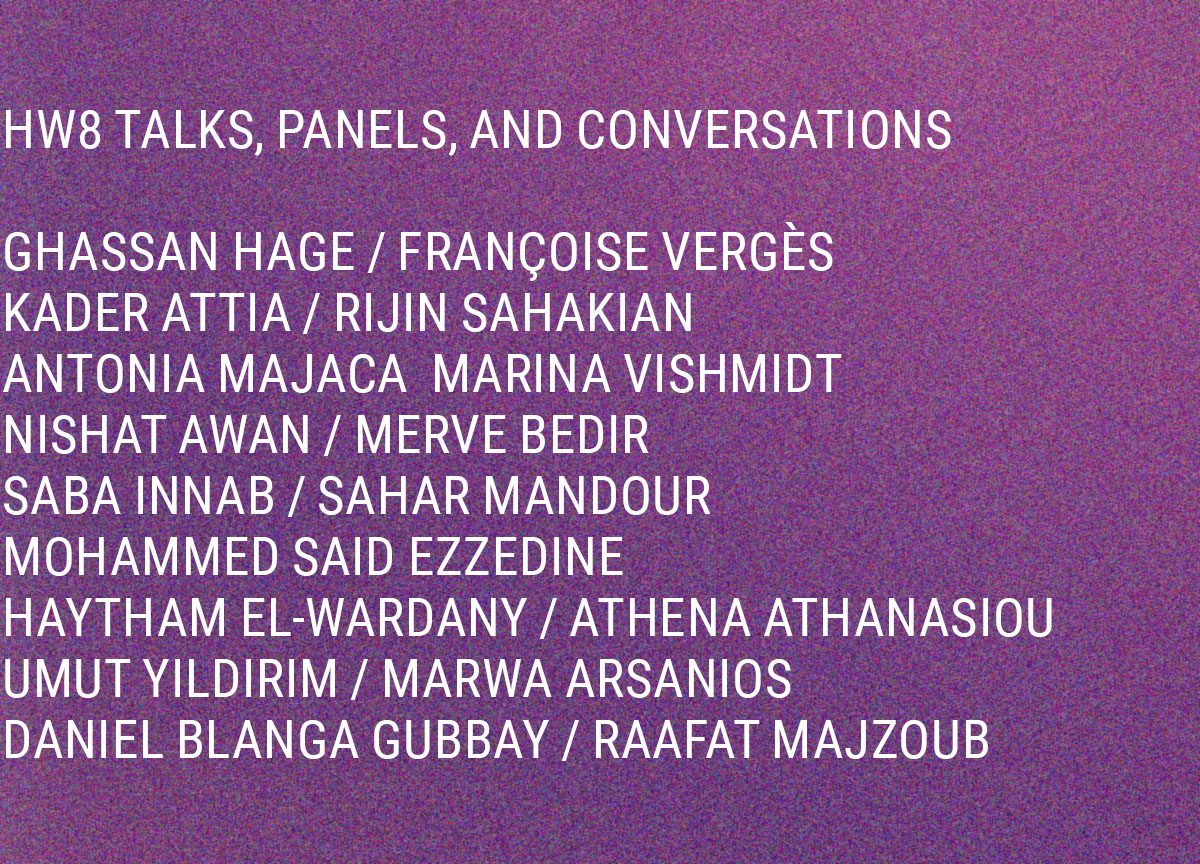Sunday, October 27th, 2019 | 11:00am at Monnot Theater
After 2011, the Syrian regime’s security forces were pushed back by the Kurdish PYD and the state land was redistributed into communes and agricultural cooperatives, some of which are women-only, such as the village of Jinwar, near Derbesiyeh in Northern Syria. In Chiapas, Mexico, a small cooperative is creating a corn seed bank, and in Tolima, Colombia, women from the Pihao indigenous community are fighting the state, corporations and the paramilitary in order to protect their agricultural land and river.
Neoliberal and colonial processes of dispossession have been countered by powerful ecological feminist claims to autonomy. Since the 1970s, ecofeminists have emphasized the alliance between women and nature in their fight against the patriarchal system, The autonomous women’s movement reconceptualizes and practices tenets of feminist ecological life, in itself visible in the village of Jinwar, for instance; they propose a radically different political, economic, and social system of living-together with nature and the world supported by an armed struggle. This panel, organized and moderated by artist Marwa Arsanios, will tackle the question of violence and justice through questions of dispossession, ecological feminism, and self-defense.
Marwa Arsanios is an artist, filmmaker and researcher who reconsiders politics of the mid-twentieth century from a contemporary perspective, with a particular focus on gender relations, urbanism, and industrialisation. She approaches research collaboratively and seeks to work across disciplines. Arsanios has held solo exhibitions at Skuc Gallery, Ljubljana (2018); Beirut Art Center (2017); Hammer Museum, Los Angeles (2016); Witte de With Center for Contemporary Art, Rotterdam (2016); Kunsthalle Lissabon, Lisbon (2015); and Art in General, New York (2015). Her work has also been shown in a number of group exhibitions, including the 1st Warsaw Biennial (2019); Sharjah Biennial 14 (2019); the 12th Gwangju Biennial (2018); Nottingham Contemporary, UK (2017); Maxxi Museum, Rome (2017); Sursock Museum, Beirut (2016); Ludwig Museum, Cologne (2016); Thessaloniki Biennial (2015); Home Works Forum, Beirut (2010, 2013, and 2015); New Museum, New York (2014); and the 55th Venice Biennale (2013), among others. She is the co-founder of 98weeks Research Project. Arsanios received a Master of Fine Art, University of the Arts London (2007) and is currently a PhD candidate at the Akademie der bildenden Kunst in Vienna.
Athena Athanasiou teaches at the Department of Social Anthropology at Panteion University of Social and Political Sciences, Athens. She has studied history, archaeology and philosophy at the Universities of Athens and Thessaloniki, Greece. She has received her PhD in Social Anthropology from the New School for Social Research, in New York, and was a postdoctoral fellow at the Pembroke Center for Teaching and Research on Women at Brown University (2001-2002). Her publications include: Life at the Limit: Essays on Gender, Body and Biopolitics (in Greek, Ekkremes, 2007); Judith Butler – Conversations with Athena Athanasiou, Dispossession: The Performative in the Political (Polity Press, 2012); Feminist Theory and Cultural Critique (ed., in Greek, Nissos, 2006); Rewriting Difference: Luce Irigaray and ‘the Greeks’ (co-ed. with Elena Tzelepis, SUNY Press, 2010); and Biosocialities: Perspectives on Medical Anthropology (ed., in Greek, Nissos, 2011). Her research interests include gender, feminist and queer theory, biopolitics, technologies of the body, antimilitarist movements, affect, nationalism, and memory.
Umut Yıldırım is a scholar currently working on her first monograph entitled Breathing under Blockade: Ruined and Radical Ecologies in a Middle Eastern Heritage Site. The book is an attempt to foreground the role of ecology in the conceptualization of resistance among genocidal ruins and in the context of the climate upheaval. Her current project expands the solid foundation of her doctoral dissertation, which she completed in the Department of Social Anthropology at the University of Cambridge in 2011. Before Cambridge, she completed her master degrees in history at the Boğaziçi University, Istanbul, and social anthropology at the London School of Economic and Political Science, London. Her research interests lie at the intersection of the anthropology of the state and sovereignty; of neoliberalism; ecological anthropology; anarchist, decolonial, and indigenous resistance; and feminist theories of affect and subjectivity.
This event is part of Home Works 8: A Forum on Cultural Practices.









